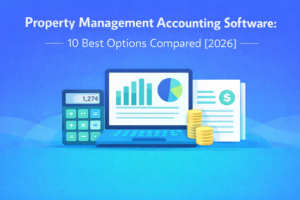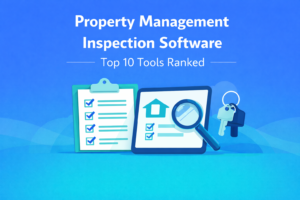
Starting a property management business can be a lucrative and financially attractive endeavor for those who are well-prepared and informed. Like building a structure, the success of your venture depends on laying a strong foundation right from the beginning. If you’re also considering to launch your own property management start-up, here are some essential steps to guide you through the process and to help you achieve success.
1. Research and Understand the Market
Before moving in, it’s imperative to understand the property market in your targeted area of operation. Is there a demand for rental properties? What’s the average occupancy rate? What are the demographics of tenants? By answering these questions, you’ll gauge the viability of your property management start-up in that specific location.
2. Draft a Solid Business Plan
Behind every successful business irrespective of industry there is a meticulously crafted plan. Your business plan should outline:
Mission and Vision: What are your business goals, and how do you plan to achieve them?
Market Analysis: As mentioned earlier, understand the local demand.
Financial Projections: Predict your expenses, expected income, and potential profit margins.
Marketing Strategy: How will you attract property owners and tenants?
3. Get the Necessary Licensing and Certifications
Most regions require property managers to have specific licenses to operate legally. While the requirements may vary, it’s typically necessary to pass a real estate or property management exam. Further, having certifications from reputed institutions can enhance your credibility in the market.
4. Set Up Your Business Infrastructure
Legal Structure: It is up to you to decide whether your property management start-up will operate as a sole proprietorship, a partnership, an LLC, or a corporation. Each has its advantages and implications.
Banking and Finance: Open a business bank account. If you’ll be handling tenant security deposits, you might also need separate accounts, depending on local regulations.
Office Space: While you can start from home, having a dedicated office can create a professional image for clients. Ensure it’s accessible and has the required facilities to manage your operations.
Hire Staff: If you’re not going solo, consider hiring staff for different roles – maintenance, leasing, accounting, etc.
5. Invest in Property Management Software
In today’s digital age, relying solely on manual methods can limit your efficiency. Property management software can help streamline tasks like rent collection, maintenance requests, and lease management, making your property management start-up more efficient and customer-friendly.
6. Develop a Comprehensive Marketing Strategy
You’ve set up your business, but now you need clients. Effective marketing is crucial. Consider:
Branding: Create a memorable logo and brand identity.
Website: An interactive, user-friendly website can attract potential clients and provide them with vital information.
Social Media: Use platforms like Facebook, Instagram, and LinkedIn to engage with a larger audience and showcase your properties.
Networking: Attend real estate events, join local business associations, and build relationships with property developers.
7. Cultivate a Strong Customer Service Ethic
The property management industry thrives on relationships. Prioritize excellent customer service to retain clients and encourage referrals. Whether it’s promptly addressing tenant concerns or offering consultancy to property owners, ensure that every interaction leaves a positive impression.
8. Continuous Learning and Adaptation
The property market is ever-evolving. Regularly update yourself with market trends, legal changes, and emerging technologies. It not only helps your business stay relevant but also offers additional value to your clients.
9. Manage Your Finances Prudently
Remember, cash flow is the lifeblood of any business. Regularly review your financial statements, maintain a budget, and be cautious with expenditures. Ensuring your property management start-up is financially healthy will pave the way for long-term success.
10. Seek Feedback and Continuously Improve
As you progress, gather feedback from both property owners and tenants. Whether it’s positive praise or constructive criticism, use this feedback to refine your services and operations.
In Conclusion
Setting up a property management start-up is no small feat. It requires careful planning, dedication, and a relentless pursuit of excellence. However, by following the steps outlined above and maintaining a proactive approach, you can lay a robust foundation for a thriving property management business. Remember, as with any business venture, the journey might come with its challenges, but with perseverance and continuous effort, success is within reach.
Table of Contents
Stay Updated
Subscribe to get the latest news, industry trends, blog posts, and updates...




